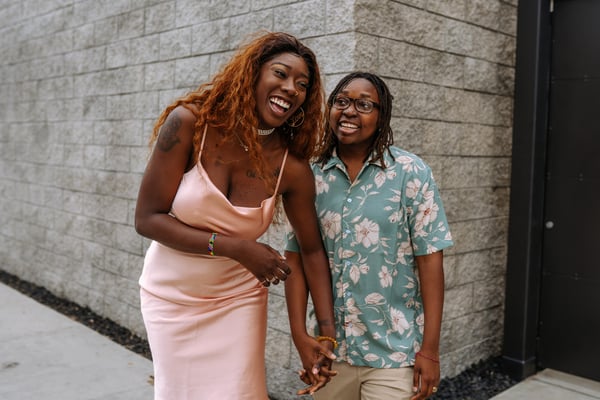While people with ADHD are just as capable of having happy and healthy romantic lives, they can encounter some unique challenges as they navigate relationships. Without adequate communication and understanding, ADHD can easily create problems between partners.
How can ADHD complicate relationships?
1. Inattentiveness and distractibility
People with ADHD often struggle with staying focused during conversations, easily getting sidetracked by external stimuli. This can be misinterpreted as a lack of interest to outsiders, which can leave their partner feeling ignored, unimportant, or overlooked.
2. Impulsivity
A person with ADHD may have trouble controlling their impulses, which can manifest in impatience, interrupting others in conversation, or acting without thinking.
3. Forgetfulness
ADHD can interfere with a person’s ability to remember things. The ADHD partner might frequently forget significant dates or plans that were made, which can make them come across as careless, disinterested, or unreliable.
4. Disorganization
Organization is a skill that’s mediated by executive function — something that many ADHDers struggle with. Disorganization can lead to missed bills, clutter all over the house, or a struggle to keep up with household and adult responsibilities. If the couple lives together, disorganization can easily become frustrating to the non-ADHD partner.
5. Emotional dysregulation
People with ADHD tend to struggle with regulating their emotions. They're prone to mood swings and emotional outbursts, which may unnerve their partner and make them feel as if they’ve done something wrong, especially if the ADHD is left undiagnosed or untreated. If problems persist, it can develop into feelings of resentment in the relationship.
On the other hand, the partner with ADHD suffers in a different way. They might feel inadequate, like they can’t meet the expectations of being a good partner. Additionally, they could feel misunderstood by their partner because they operate differently.
Advice for couples in relationships with ADHD
1. Knowledge is power
If you are the non-ADHD partner, educate yourself on ADHD and your partner’s lived experience with it. Understanding ADHD and the way it affects your partner will give you more insight into how their mind works and will allow you to support them better the next time problems arise.
2. Make an effort
If you are the ADHD partner, put effort into managing your ADHD. Find treatment options that work for you and be aware of how your ADHD tends to trip you up. Think of managing your ADHD as an investment in your relationship.
3. Prioritize communication
Whether you're the ADHD partner or the neurotypical partner - make honest communication a priority. Reserve time each month when you can talk about your relationship and any frustrations you may be having.
4. Set up distraction-free quality time
Get in the habit of regularly setting aside time for the two of you to spend together — completely free from distractions, like phones or Netflix. The havoc of daily life combined with ADHD can make it difficult to truly connect with your partner, so it will have to be intentional on your part.
5. Laugh it off — c’est la vie!
It’s no secret that ADHD can cause misunderstandings. At the end of the day, sometimes all you can do is laugh it off. Try to have a sense of humor when it comes to ADHD-fueled mishaps! You’ll both feel much better if you’re able to have a good laugh together, rather than arguing.
6. Be mindful
Most importantly, try to have compassion for yourself and for your significant other. ADHD can complicate any aspect of life, and relationships are no exception. Simply being mindful of the raw effect that ADHD may have on you, your partner, and your relationship is a great way to find that compassion.
With communication, patience, and a commitment from both partners to make it work, your relationship can thrive.





